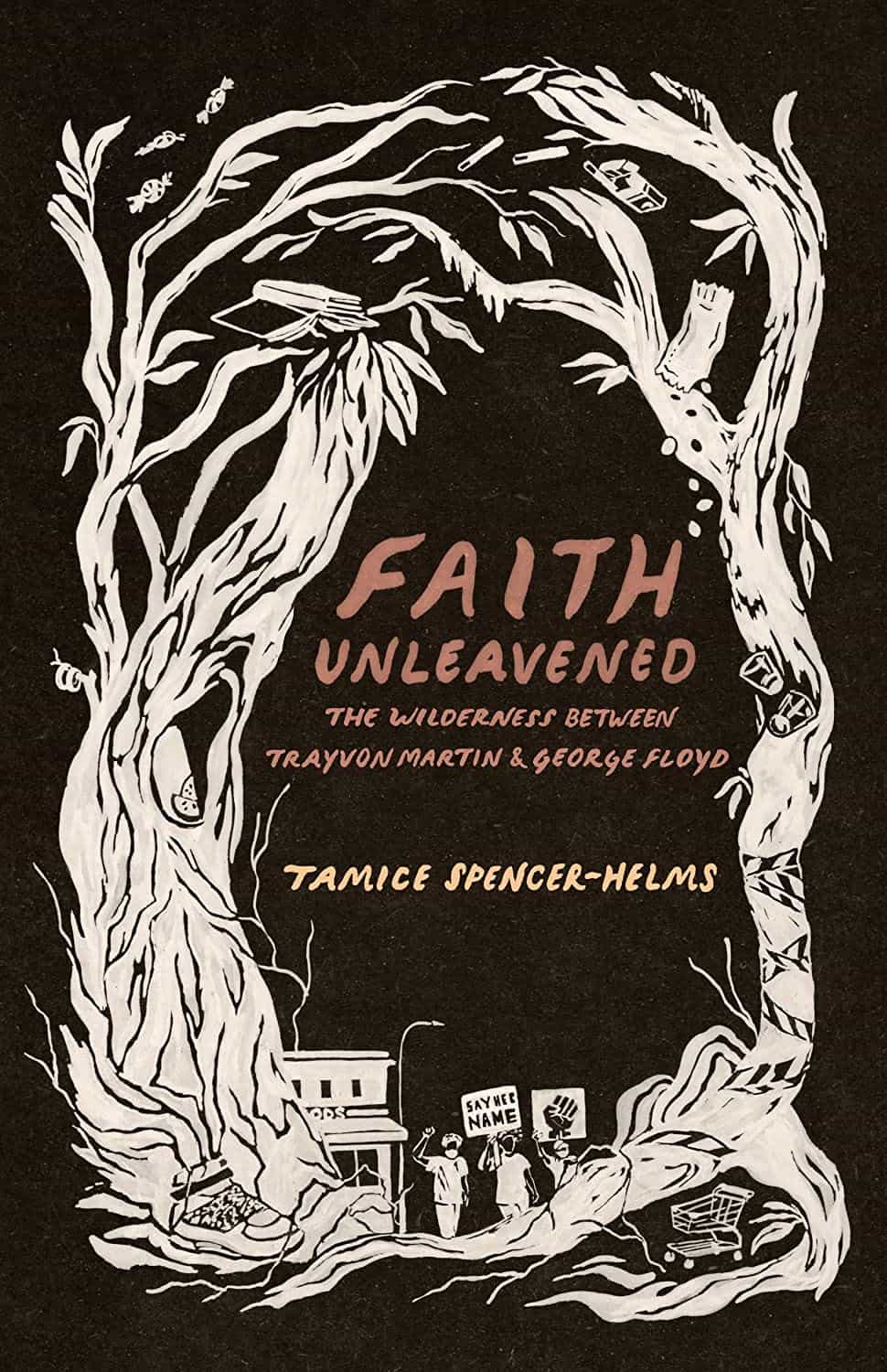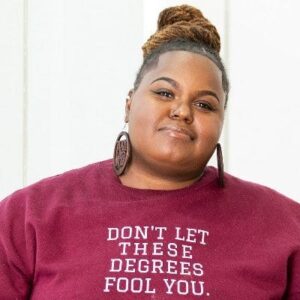 It had been three years since Trayvon Martin was killed. I was living in Atlanta, Georgia, working full-time for a mostly white college ministry. And I was dying inside.
It had been three years since Trayvon Martin was killed. I was living in Atlanta, Georgia, working full-time for a mostly white college ministry. And I was dying inside.
I spent the three years after Trayvon died in perpetual despair. My friends from the white churches and ministries in which I found myself could only ask why I was so upset about some “thug” in Florida being in the wrong place at the wrong time. I fell into a deep and nauseous sadness that grew more and more unbearable. I had enough experience to do student discipleship on fumes and autopilot. But the extent of my Christianity at the time was to take shots of Patrón and walk to the little church near my apartment complex for communion.
A few years before I left Atlanta, I started reading the “naughty list” of authors that all the white evangelicals I knew deemed deceptive and dangerous.
I read Gustavo Gutiérrez, who believed that God spoke particularly to and through the poor and that the Bible could only be understood when seen from that perspective. James Cone talked about how Jesus’ experience in the 1st century was parallel to the Black experience in America. Katie Cannon opened my eyes to womanist theology: She argues we must do the theological work that our souls must have when we experience tragedy, when we are desperate, like I was. These authors offered me theological containers that could actually fit the carnage and confusion I experienced from Trayvon’s death to George Floyd’s, and all the Black lives that should’ve mattered in between. Why hadn’t anyone told me about these voices?
What I found amongst these demonized theologians was a treasure trove of possibility. All of them were angry about the same things as I was, and they still loved Jesus as much as I did. The more I gave space to my pain, my questions, and my doubts, the more aware I became of my nearness to God.
At some point, I had subconsciously concluded that if Jesus was a white man, then I, a Black woman seeking to become like him, would have to deny and suppress the most beautiful and vulnerable aspects of my identity. This was the conundrum in my Christian discipleship: between me and White Jesus, one of us had to go. And it wasn’t going to be me. Not this time. The naughty list was resurrecting me. It was White Jesus’ turn to die.
The folks who first introduced me to White Jesus told me that the Bible was the highest authority because it was inerrant, infallible, and inspired. The only way to take it seriously was to take it literally. And the only way to take it literally was to believe whatever they said about it. The white ministries and institutions I served in from that point on never once investigated the structure or culture or expectations of the tables they set. Whiteness caused them to believe that their theology was objective, and sound, and therefore biblical.
Any theology or experience that originated within a different social location was not worth serious examination. That’s why the evangelical container White Jesus gave me couldn’t handle the weight of all the dead Black bodies continually piled upon it. I wonder how I would have handled Trayvon had I known about Cone or Cannon.
The Bible cannot speak for or interpret itself, and no one can read it bereft of their cultural lens. Too often, the Bible is a prop or an instrument to enforce the will of the wielder. And when the Bible is a prop, it can’t be prophetic. But Scripture, taken on its own terms, cannot be a weapon, because it is too often confounding and mysterious.
And Jesus is the Word, made flesh.
My ancestors were not allowed to read or write, but they knew that what they were told about their lives and their worth was false. It didn’t matter what the master told them the Bible said; they knew intrinsically that it was wrong. White slaveholders spoke in the name of the Bible in an effort to claim its authority and harness its power.
Believing in the inerrancy and clarity of Scripture would have kept my family in chains. But they had courage to resist and confront harmful uses of Scripture. Today, no one would dare question their rejection of slaveholders’ “plain” reading of Scripture. No one would say their intrinsic certainty that what was “clear” in the text was problematic in praxis, and thus wrong. The Scripture said that slaves should obey their masters, but my ancestors knew from a different source that what they were experiencing in the name of Jesus had nothing to do with him. Coming to terms with that fact was the beginning of my enthusiastic return to Scripture. In the secrecy of hush harbors, African slaves forged a purer faith than their white slaveowners. My ancestors were not converted to Christianity, but they converted Christianity to themselves! White preachers enslaved human beings, truncated the gospel, and weaponized Scripture. But my ancestors came to Jesus without any social power to sanctify.
Scripture is littered with instances of God smiling upon disobedience of authority, and of Scripture itself. Whether it’s Puah and Shiphrah lying to preserve the lives of Hebrew babies, or Rahab lying about where the Hebrew men were hiding, or David and his men eating the bread reserved for the priests, or Jesus healing on the Sabbath, or Peter’s de-emphasis of the law in pursuit of gentile converts, or Peter eating food sacrificed to idols. The stories we tell, that we enjoy, that aid in our own liberation are often about people daring to believe that God is who they hoped God was. Scripture’s authority in the lives of the oppressed lies in its ability to speak to, make sense of, and name their lived experience. Reading the naughty list freed me to see the inspiration of the Scripture with new eyes.
Or maybe old ones. Because this is what I had fallen in love with when I first started reading the Bible, before I met White Jesus. I loved the diversity of genres and perspectives. I loved Jesus’ wit and mystery and curiosity. White Jesus made a desire for certainty overtake all that, and I stopped asking questions. By the time I was taking communion in the back pew of that Atlanta church, whiteness had clouded Jesus altogether. Extracting the leaven helped me take the Bible more seriously than I ever have because I let it be itself, and I stopped pretending I was objective. What the folks on the naughty list and my ancestors did was demand that theology about God be actually worthy of God.
And now, so do I.
Adapted from the book Faith unleavened: The Wilderness Between Trayvon Martin and George Floyd (KTF Press LLC, 2023), which is available for purchase now.
 Tamice Spencer-Helms is a published author, speaker, and theologian based in Richmond, Virginia.
Tamice Spencer-Helms is a published author, speaker, and theologian based in Richmond, Virginia.


